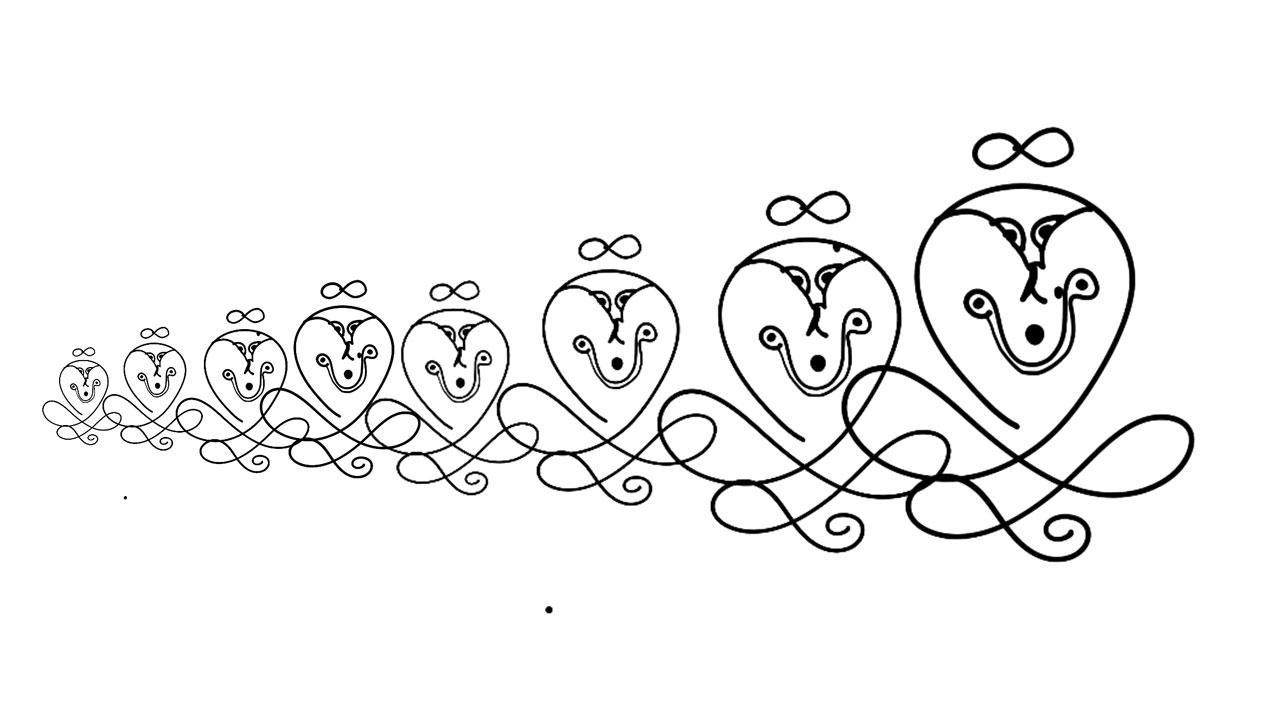There is always something bigger and smaller than us. From measurement comes delusion (maya).

Illustration/Devdutt Pattanaik
 To show how time is different for different beings in this cosmos, Hindu Puranas proclaimed: the human lifespan is equal to one blink of Indra. Indra’s lifespan is equal to one blink of Brahma. Brahma’s lifespan is equal to one blink of Vishnu. Vishnu’s lifespan is equal to one blink of Shiva. Shiva’s lifespan is equal to one blink of the Goddess. Nobody knows the lifespan of the Goddess, as all observers are born of her.
To show how time is different for different beings in this cosmos, Hindu Puranas proclaimed: the human lifespan is equal to one blink of Indra. Indra’s lifespan is equal to one blink of Brahma. Brahma’s lifespan is equal to one blink of Vishnu. Vishnu’s lifespan is equal to one blink of Shiva. Shiva’s lifespan is equal to one blink of the Goddess. Nobody knows the lifespan of the Goddess, as all observers are born of her.
To show how different beings have different strengths, Jain scriptures proclaimed: 12 warriors have the power of a single bull, 10 bulls have the power of a single horse, 12 horses have the power of a single buffalo, 15 buffaloes have the power of a single elephant, 500 elephants have the power of a single lion, 2,000 lions have the power of a single sharabha (eight-legged carnivore), a million sharabhas have strength of a single Baladeva, two Baladevas have the strength of a single Vasudev, two Vasudevs have the strength of a single Chakravarti, 100,000 Chakravartis have the strength of a single Nagaraj, 10 million Nagaraj have the power of a single Indra, and the power of innumerable Indras is nothing compared to that of a Tirthankara.
In these narratives, notions of big and small are not absolute; everything exists in proportion to something else. There is always something bigger and smaller than us. From measurement comes delusion (maya).
In the Vedas and Jain scriptures we find reference to very large numbers that are not of daily use: 1012 in Yajur Veda, even 10224 in Jain lore describing when the first Tirthankara lived. This calculation of big unusable numbers indicates a yearning for the concept of infinity or ananta. We are limited beings who live in a limitless world and must always be aware that there is always someone below us and someone above us. We exist in a continuum which extends from nothingness to everythingness, zero to infinity.
Also read: To all the homes I loved before
These ideas of a continuum, of relative strength, of exponential numbers, contributed to both Indian cosmogony and Indian mathematics. It is dramatically different from Western thought where the world was considered to be limited, fixed, predictable, and lacking such large numbers and dimensions. This is perhaps the reason why Western thought constantly yearns for certainty and predictability, while Indian thought is designed to enable the mind to cope with unpredictability and uncertainty.
In the Indian worldview, with infinite numbers, much is incalculable, and so there are no guarantees of life and no one can control everything. Focus on action, not results, says Gita. While in the Western worldview, with a finite set of numbers, everything is calculable and so there are guarantees in life and God can make everything predictable. As you sow, so you reap, says the Bible.
In a world of infinity, our value is zero. To realise nothingness (shunya) was a Buddhist obsession. To merge with infinity (ananta/purna) was a Hindu obsession. Jains were obsessed with locating ourselves on the number line: positive ladders towards privilege, negative snakes towards misery. We rise when we contribute and fall when we consume. All three faiths spoke of endless rebirths in a meaningless merry-go-round based on mathematics of deeds (karma). Fear of this invalidation in a matrix of infinite indifferent numbers produced the false value: the ego.
The author writes and lectures on the relevance of mythology in modern times. Reach him at devdutt.pattanaik@mid-day.com
 Subscribe today by clicking the link and stay updated with the latest news!" Click here!
Subscribe today by clicking the link and stay updated with the latest news!" Click here!








